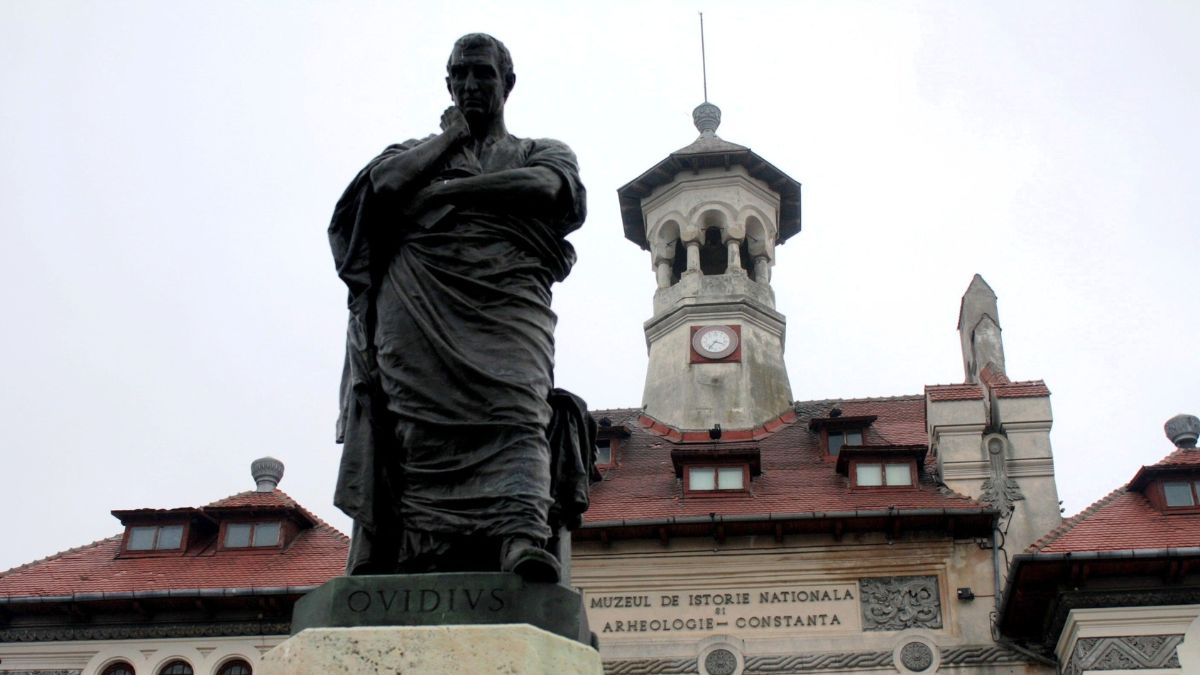Kalidasa (Classical Sanskrit Literature)
Kalidasa (Classical Sanskrit Literature)
Ovid (Roman Poetry)

Ovid (Roman Poetry)
In the heart of ancient Rome, amidst the grandeur of marble and the echoes of a civilization that has shaped the very foundation of the modern world, there existed a poet whose words transcended the confines of time and space, weaving tales that continue to enchant and awe us to this very day. This master of the written word, none other than Ovid, carved his niche into the annals of history with the finesse of a sculptor, leaving behind a legacy that is nothing short of miraculous.
Ovid, born in the bustling town of Sulmo, ventured beyond the ordinary from a young age. With Rome as his canvas, he painted with words, crafting verses that flowed like the rivers of his homeland, capturing the human experience in all its complexity. His magnum opus, “Metamorphoses,” is a testament to his unparalleled genius, a tapestry of myths and legends, seamlessly interwoven, that invites us into a world where gods and mortals collide, where love, jealousy, transformation, and redemption are not merely concepts, but vivid realities.
Imagine, if you will, the sheer audacity to conceive such a work. “Metamorphoses” is not merely a collection of stories; it is an odyssey through the human soul, a mirror reflecting our deepest desires and fears. Through Ovid’s eyes, we witness the metamorphosis of Daphne as she transforms into a laurel tree, a poignant portrayal of love’s power to both save and destroy. We stand alongside Narcissus, lost in the reflection of his own beauty, a timeless warning of the dangers of self-obsession. Ovid, with the delicacy of a whisper and the impact of thunder, reveals the impermanence of form and the eternal nature of the human spirit.
But Ovid’s genius was not confined to the mythological. His earlier works, such as “Amores” and “Ars Amatoria,” explore the intricacies of love and relationships, showcasing his ability to delve into the complexities of the heart with both humor and depth. In these poems, Ovid emerges not just as a storyteller, but as a confidant, a lover, a friend. He navigates the labyrinth of human emotions with the ease of a seasoned traveler, guiding us through the joys and sorrows, the triumphs and defeats of love.
Yet, for all his brilliance, Ovid’s journey was marked by tragedy. Exiled by Emperor Augustus to the remote shores of the Black Sea, he found himself a stranger in a strange land, his voice silenced, his spirit confined. But even in exile, Ovid’s flame refused to be extinguished. His letters from exile, filled with longing and despair, offer a raw glimpse into the soul of a man who, despite the cruelty of fate, never lost his passion for life and literature.
Ovid’s legacy is a beacon of inspiration, a reminder of the power of words to move, to transform, to endure. His works, a blend of the ethereal and the earthly, invite us to look beyond the surface, to explore the depths of our own being. In reading Ovid, we are reminded that we, too, are part of this grand, ever-unfolding story of transformation, connected by the timeless threads of emotion and experience.
As we stand in awe of Ovid’s monumental contributions to literature and human thought, let us remember that his poetry is not just a relic of the past, but a living, breathing entity that continues to inspire, challenge, and enchant us. Ovid, the master poet of Rome, whispers across the ages, urging us to embrace the metamorphoses within ourselves and the world around us, forever capturing our imaginations and holding them in thrall.